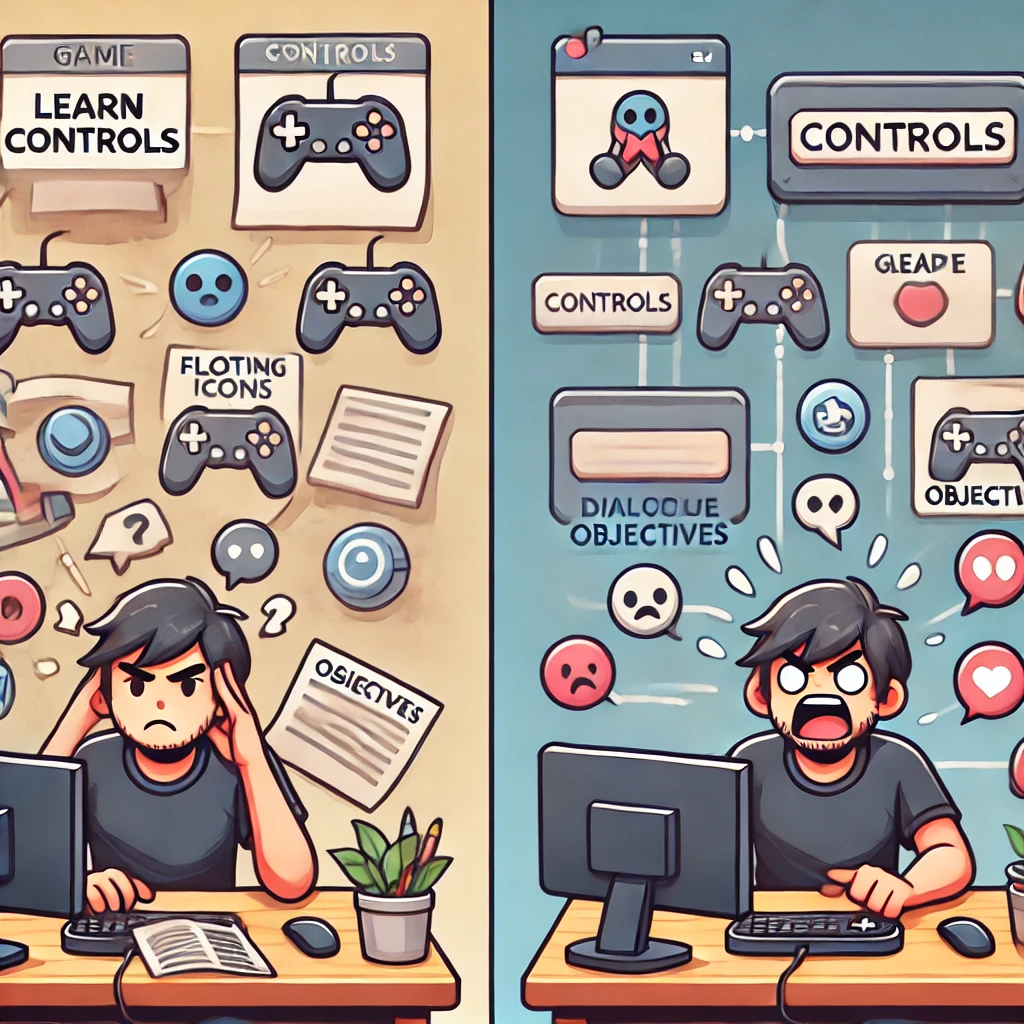Every game needs to teach players how to play—but too often, tutorials either overwhelm or under-explain. Crafting the perfect tutorial is one of the trickiest challenges in game design, especially in a world of short attention spans and complex systems.
Common Tutorial Mistakes
- Too much text: Players skip long explanations, especially at the start
- Too little guidance: Some games throw you in without context
- Non-skippable: If a tutorial is dull or forced, it ruins first impressions
- Interrupting flow: Popups in the middle of action can break immersion
What Makes a Good Tutorial?
- Contextual learning: Introduce mechanics as they become relevant
- Show, don’t tell: Let players discover through doing, not reading
- Player choice: Offer layered depth—basic for newcomers, deeper for those who want it
- Feedback loops: Rewards and confirmations help reinforce understanding
Games That Do It Well
- Portal – Teaches through puzzles with perfect pacing
- Celeste – Integrates movement tutorials into emotional storytelling
- Super Mario Odyssey – Uses visual cues and smart level design
- Hades – Introduces mechanics gradually through repeated runs
Tutorials are your first handshake with the player—and possibly the moment they decide whether to stay or leave. Make it count.

Leave a Reply